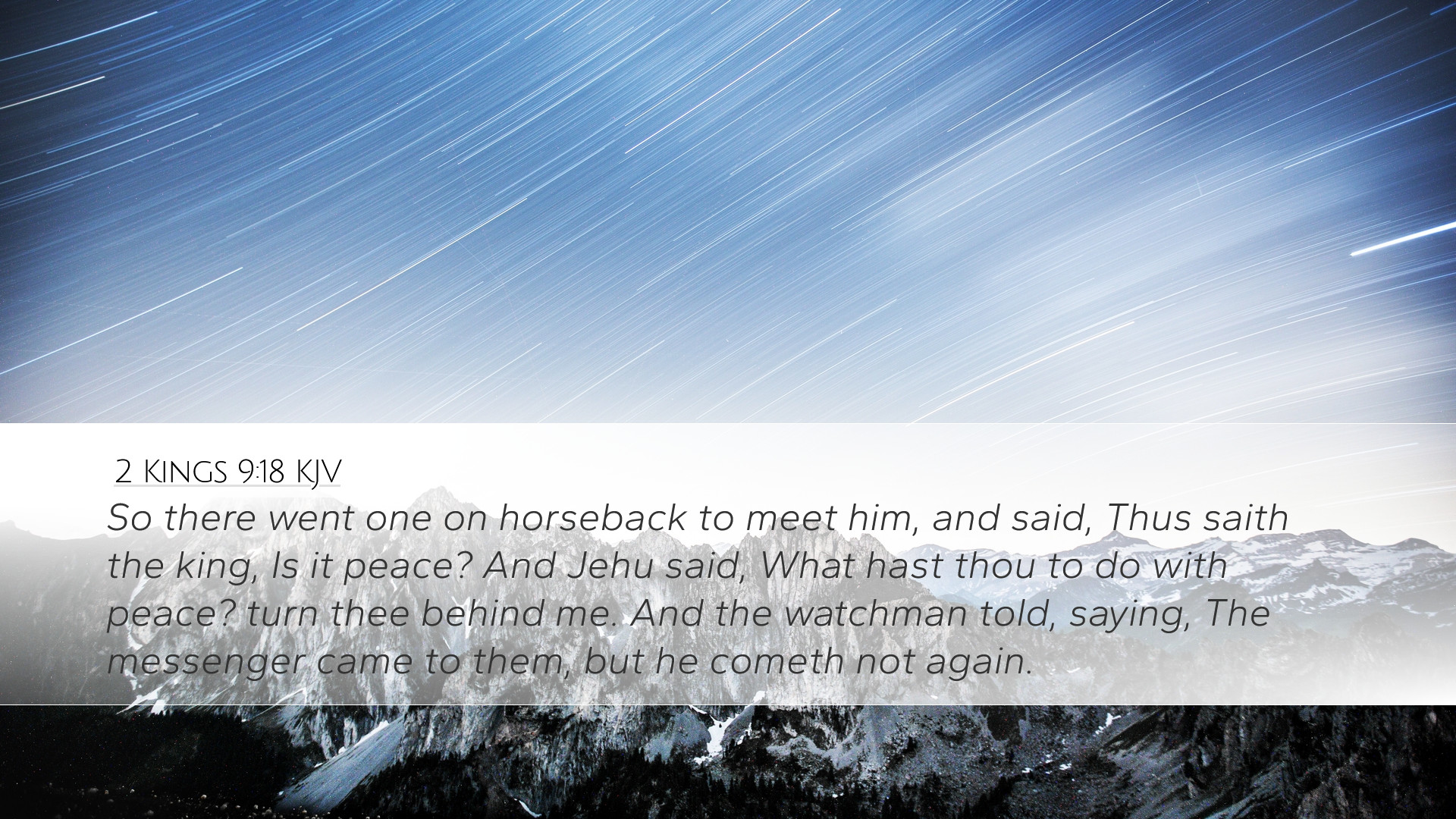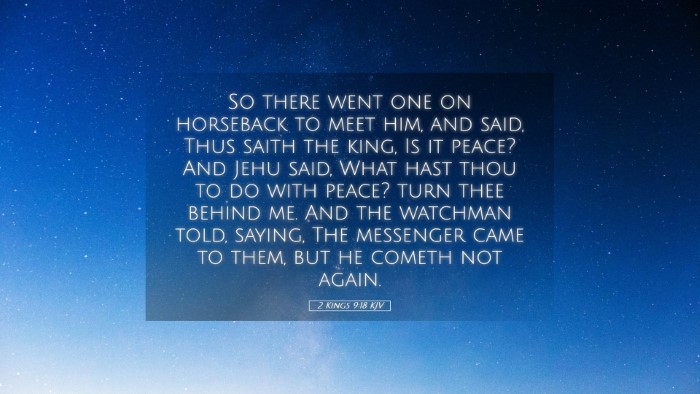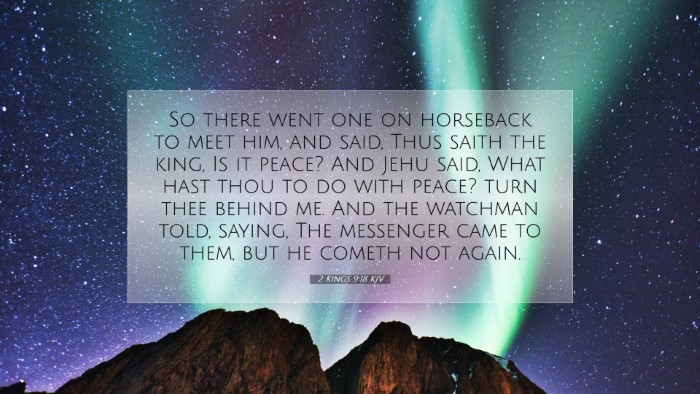Commentary on 2 Kings 9:18
Verse Context: 2 Kings 9:18 states, “So Jehu rode in a chariot and went to Jezreel, for Joram lay there. And Ahaziah king of Judah had come down to see Joram.” This verse occurs in a critical narrative moment as God’s ordained leader fulfills prophecies regarding judgment on the house of Ahab.
General Overview
This passage marks a significant transition in the biblical history of Israel and Judah, as Jehu, anointed by the prophet Elisha, begins his mission to eradicate the idolatry and bloodshed represented by the house of Ahab.
Exegesis and Thematic Insights
Various public domain commentaries give us deeper insights into this crucial moment:
Matthew Henry's Commentary
Henry emphasizes the providence of God visibly operating through Jehu's mission. He notes the contrast between the two kings: Joram, representing the continuation of Ahab's idolatrous legacy, and Jehu, a divinely chosen instrument of judgment.
- Divine Providence: Henry suggests that God’s hand is guiding Jehu and that the events unfolding are part of a divine plan to fulfill His covenant promises.
- Judgment on Idolatry: The act of Jehu driving through Jezreel signifies the impending judgment on those who turned away from God.
Albert Barnes' Notes
Barnes highlights the political implications surrounding this narrative, analyzing how Jehu's actions in his entry to Jezreel were not merely military but also personal and prophetic. His commentary suggests that Jehu's boldness reflects the definitive breaking away from Ahab's legacy.
- Authority of God: According to Barnes, Jehu's arrival was a fulfillment of prophecy, demonstrating that God's word prevails over human authority.
- Jehu's Righteous Zeal: Jehu's zeal for the Lord and his mission to destroy the house of Ahab reinforces the theme of restoration and reformation within Israel.
Adam Clarke's Commentary
Clarke delves into the character of Jehu and his motivations. He notes how Jehu’s actions can be interpreted both as divinely appointed judgment and as ruthless ambition, suggesting a complexity in Jehu’s character that warrants reflection.
- Jehu’s Motivation: Clarke posits that Jehu's fervor, while divinely inspired, also contained elements of personal ambition, raising ethical questions about the nature of leadership.
- The Role of Prophecy: Clarke examines the prophetic dimension of Jehu's actions—his rise was preordained, reflecting God's intention to cleanse Israel of its sins.
Theological Implications
This passage, while historical, serves rich theological significance:
- God’s Sovereignty: The verse exemplifies God's sovereignty over nations and kings. It reassures believers of God's control even in tumultuous political landscapes.
- Call to Purity: Jehu’s mission symbolizes the call to purity and the need for believers to turn away from idolatry and iniquity.
- Divine Judgment: The text serves as a stark reminder of divine accountability. It illustrates the patience of God with sin and eventual execution of righteous judgment.
Practical Application
For pastors, students, and theologians, the narrative provides several practical applications:
- Righteous Leadership: Leaders are called not just to lead, but to ensure their leadership aligns with God’s righteousness, paralleling Jehu's mission.
- Assessing Motivations: Reflect on personal motivations behind actions; are they aligned with God’s purposes, or tainted by personal ambition?
- Committed to Purity: Encourage congregations to remain vigilant against societal temptations that lead to spiritual compromise.
Conclusion
2 Kings 9:18 encapsulates a significant moment where prophecy and action converge, revealing God’s sovereignty and justice. As Jehu rides into Jezreel, he not only carries out judgment but also serves as a critical agent of change, calling the nation of Israel back to fidelity to their God. The insights from Henry, Barnes, and Clarke help illuminate the multifaceted meaning behind this text, providing ample material for reflection and application.


